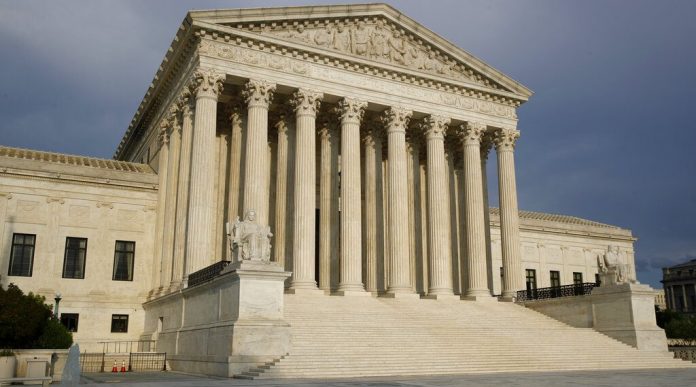This article is written by Pravin Patil, pursuing a Certificate Course in Intellectual Property Law and Prosecution from LawSikho.
Facts
In 1717, the pirate Edward Teach, also known as Blackbeard, seized the Queen Anne’s Revenge, a former French merchant vessel. When the Revenge ran aground off the coast of Beaufort, North Carolina, Teach abandoned it. The wreck was under North Carolina’s “exclusive dominion and power” under N.C. Gen. Stat[1]. The wreck was discovered in 1996 by the private salvage company Intersal, which entered into a salvage agreement with North Carolina (“State”) and the North Carolina Department of Natural and Cultural Resources (“Department”) in 1998. Petitioners Frederick Allen and his production company Nautilus Productions, LLC (collectively “Allen”) were hired by Intersal to photograph the salvage.
The salvage agreement granted Intersal the “exclusive right to produce and sell all commercial narrative… accounts of project related activities,” thus reserving the right for North Carolina to make non-commercial educational video and/or film documentaries and to have other documentary objects (maps, field notes, photographic records) available to become public record. Allen registered thirteen copyrights for different documentary materials during the salvage operation, each covering a year’s worth of footage. Allen complained in 2013 that the Department’s online publication of his work infringed on his copyrights. On October 15, 2013, a settlement agreement was reached in this dispute. The settlement agreement divided the footage into commercial and non-commercial categories, with the categories defining the parties’ rights to the documentary materials and establishing watermarking, time codes, and links to Department and company websites as conditions.
Allen claimed that the Department continued to infringe on his copyrights after the settlement agreement was signed in 2013, and he gave the Department a takedown notice. Allen sued the State Department and six Department officials in both their personal and official capacities in December 2015. There were five counts in the amended lawsuit. In summary, the counts claimed copyright infringement and that N.C. Gen. Stat[2] was enacted in bad faith and was unenforceable because federal copyright law preempted it. In November 2016, just before a hearing on the Department’s motion to dismiss, the Department finally complied with Allen’s takedown notice. The State sought to dismiss the case before the district court, claiming sovereign immunity under the Eleventh Amendment. Allen responded by claiming that the Copyright Remedy Clarification Act[3] (“CRCA”) had nullified sovereign immunity. The State appealed the circuit court’s decision to deny its motion to dismiss. The Fourth Circuit overturned the district court’s decision, ruling that the CRCA did not constitute a legal waiver of state sovereign immunity. On January 4, 2019, Allen petitioned the United States Supreme Court for a writ of certiorari, which the Court issued on June 3, 2019.
Table of Contents
Issue
Did Congress have the authority to pass the Copyright Remedy Clarification Act, which removed states’ sovereign immunity from violating federal copyright laws, under Article I of the Constitution or Section 5 of the Fourteenth Amendment?
Judgement
The Supreme Court ruled[4], that under the doctrine of sovereign immunity, states cannot be held responsible for copyright infringement. In doing so, the court determined that the state’s protection was not waived by the Copyright Remedy Clarification Act of 1990 (CRCA), which purportedly did so. The Court came to this conclusion almost exclusively on the basis of its decision in Florida Prepaid case[5], in which it held that states were not responsible for patent infringement despite the Patent and Plant Variety Protection Remedy Clarification Act (PPVPRCA), which is the patent equivalent of the CRCA. The Court looked at the test that must be met for a state’s sovereign immunity to be revoked in both Allen and Florida Prepaid.
The test, among other items, necessitates a strong Congressional intent to abrogate, as well as some constitutional support for the abrogation. In both cases, the Court found that Section I of the Constitution (the Intellectual Property Clause and, in Florida Prepaid, the Commerce Clause) was inadequate, but that the Fourteenth Amendment could be: explicitly, if abrogation was required to remedy a state’s failure to provide due process before taking a citizen’s property. The existence of “congruity and proportionality” between the damage to be avoided or remedied and the means used to do so was required for a Fourteenth Amendment basis to be established. The Court held that the CRCA abrogation was not as congruous and proportional as the PPVPRCA abrogation because the record did not show any widespread pattern of patent or copyright[6] infringement by states, and the abrogation statute was not limited to states that behaved willfully or did not offer an alternative remedy. However, the Court in Allen stated that now that Congress understood what it needed to do to achieve such consistency and proportionality, it might function within its constitutional authority.
Analysis
-
Does the Intellectual Property Clause impliedly provide for State Sovereign Immunity to be abrogated?
Allen claims that the United States Constitution’s Intellectual Property Clause[7] requires Congress to revoke a state’s sovereign immunity. He argues that the Constitution expressly states that Congress has an exclusive privilege not enjoyed by the other branches of government, indicating that such an intent to forfeit sovereign immunity exists. Further, the clause gives Congress sole authority to grant copyrights and preserve individuals’ exclusive copyright rights. Allen contends that the Framers did not plan for states to retain sovereign immunity after infringing on a federal copyright holder’s federal copyright. Prohibiting people from suing states for copyright infringement would disturb the Framers’ balance between federal and state law, allowing states to disrupt the federal system designed to support and reward copyright holders’ work. The framers clearly intended the Clause to condemn states’ sovereign immunity because it was passed unanimously and without discussion, suggesting widespread agreement on the importance of a consistent federal response. Allen cites the Copyright Act[8] as further evidence of the Framers’ desire to abolish state sovereign immunity.
Cooper argues that the Constitution seldom revokes state sovereign immunity because it sets stringent conditions for doing so. A constitutional clause must be explicitly written or undeniably inferred to infringe on a state’s sovereign immunity. The Clause fails this test, according to Cooper, because it does not specifically sanction suits against states. It is claimed that the word “protected” in the Clause does not obligate Congress to protect copyrights from all forms of infringement, but rather only authorized Congress to establish future copyrights that are subject to the usual constitutional limitations on federal legislation. It is also claimed that the general objective of national uniformity is insufficient to support the claim that the Framers expected Congress to have the power to limit state sovereign immunity under the Clause. Otherwise, all powers given to Congress under Article I, according to Cooper, will allow it to revoke state sovereign immunity. Lastly, the respondents claimed that the Copyright Act of 1790[9] only protected such types of writing from intrusions by individuals rather than sovereign bodies.
-
Does congress have the authority to enact the CRCA under the Fourteenth Amendment?
Allen claims that Section 5[10] of the Fourteenth Amendment gives Congress the power to enforce the Fourteenth Amendment’s guarantees by providing redress for and deterring violations of substantive due process rights provided by the Fourteenth Amendment. According to Allen, Congress has the power to provide a private recourse for copyright holders against states under Section 5 because it is a proportionate and consistent response to state breaches of federal copyright law. Allen claims that this remedy is proportionate and congruent, as required by the Supreme Court. Because of the many problems that copyright holders face in bringing infringement cases, Allen stresses that an alternate remedy cannot be an appropriate solution. Lastly, Allen claims that the CRCA was enacted to protect individuals from states’ persistent breaches of copyrights that affected copyright holders without consequence.
On the other hand; Cooper counters that the CRCA cannot be enforced under Section 5[11] of the Fourteenth Amendment because it fails the Supreme Court’s two-part test. First, Cooper claims that there is no proof that Congress passed the CRCA to remedy state copyright infringement in order to enforce the Due Process Clause. Second, the remedy given by the CRCA is not proportionate, according to Cooper. Cooper also claims that Congress failed to thoroughly consider alternative remedies since the statute’s text does not mention other types of relief and ignores alternatives to injunctive relief that comply with due process, such as state law breach of contract and tort claims, as well as federal law takings claims and claims directly against responsible individuals. Lastly, Cooper claims that the legislative past shows Congress thought state copyright violations were rare, and that the examples given by Allen are insufficient to justify abrogation under Supreme Court precedent.
-
Is prepaid controlling in Florida required?
Allen contends that the Supreme Court’s decision in Florida Prepaid[12] does not preclude the Court from considering this case or, alternatively, that it should be overruled for failing to properly consider Congress’s powers of abrogation under the Clause. Allen claims that Florida Prepaid was only concerned with the Patent Remedy Act’s constitutionality under Section 5 of the Fourteenth Amendment. According to Allen, Florida Prepaid only concluded, but did not decide, that Congress could not sanction private suits against states under its Article I under current law. Because of the extensive legislative background supporting the CRCA and the fact that the CRCA uses a proportionate remedy that is otherwise inaccessible, Allen argues that the facts of this case vary enough from those in Florida Prepaid to warrant a different decision.
Whereas, Cooper counters that the Supreme Court’s decision in the Florida Prepaid case refers to the facts of this case, and thus the Clause prohibits private suits against states. According to Cooper, the Patent Remedy Act was struck down by the Supreme Court in Florida Prepaid on the grounds that Congress cannot allow persons to bring private claims against states under the Clause. Cooper insists that Florida Prepaid has control because Congress’ authority over patents and copyrights are related under Article I, so they should be interpreted in the same way. Cooper contends that Florida Prepaid established that Congress lacked the authority to revoke sovereign immunity under the Patent Clause, and that the Court should follow that decision in this case.
References
[1] N.C. Gen. Stat. §121-22.
[2] N.C. Gen. Stat., §121-25(b).
[3] Copyright Remedy Clarification Act (1976).
[4] Frederick L. Allen v. Roy A. Cooper, III, Governor of North Carolina, 589 US (2020)
[5] Florida Prepaid Postsecondary Ed. Expense Bd. v. College Savings Bank, 527 U. S. 627 (1999)
[6] “Allen v. Cooper”, Copyright Alliance (Nov. 18, 2019).
[7] United States Constitution, art. I, § 8, cl. 8.
[8] The Copyright Act of 1790.
[9] Ibid.
[10] U.S. Constitution, The 14th Amendment, § 5.
[11] Ibid.
[12] Supra.
Students of Lawsikho courses regularly produce writing assignments and work on practical exercises as a part of their coursework and develop themselves in real-life practical skill.
LawSikho has created a telegram group for exchanging legal knowledge, referrals and various opportunities. You can click on this link and join:
 Serato DJ Crack 2025Serato DJ PRO Crack
Serato DJ Crack 2025Serato DJ PRO Crack











 Allow notifications
Allow notifications


